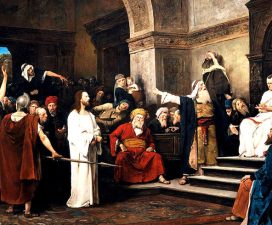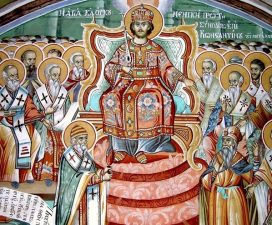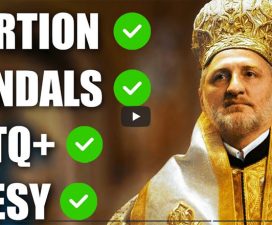OrthodoxyToday | by Fr. Patrick Henry Reardon | Dec. 20, 2009
Just as interesting as the recent Manhattan Declaration, perhaps, is the variety of responses the document elicited among those conservative Christians who declined to endorse it.
Commenting on this subject not long ago, I was reluctant to ascribe motives to such individuals, beyond the reasons they explicitly offered. I had my suspicions, nonetheless, as I hinted by mentioning their refusal to “associate with the other signers.” That is to say, I suspected that the identity of some of the signers was taken, in certain cases, as a reason for not signing.
For example, Father Jonathan Tobias, an Orthodox priest, wrote derisively of “a whole dizzy array of denominations and ‘parachurch ministries’ and even strange things called the ‘Alliance Defense Fund'” and complained that the “Roman Catholic Diocese of Pittsburgh is listed six entries down from something called ‘Performance Matters Associates.'” That is to say, the signers included an unfortunate herd of the weird and unwashed.
Some Evangelical spokesmen objected to the inclusion of Roman Catholics and Orthodox under the label “Christian.” For instance, R. C. Sproul, admitting that some real believers could be found in the Roman Catholic and Orthodox churches, contended that such people “are Christians in spite of their church’s official doctrinal positions.” Sounding much the same note, Alistair Begg regarded the document as a “declaration of Christians mutually recognizing the reality of each other’s faith.” According to John MacArthur, the Declaration “constitutes a formal avowal of brotherhood between Evangelical signatories and purveyors of different gospels.” That is to say, the signers included a lamentable assembly of heretics and unbelievers.
I weigh these sad assessments, not only from my interest in the Manhattan Declaration, but also because they touch a larger preoccupation that might be called “ecumenical.” Using this expression, I have in mind a sympathetic interest in brethren who are separated from me — and from one another — through various tragedies suffered throughout Christian history.
In approaching this res ecumenica I have long been inspired by biblical history, particularly the tragic departure of Israel’s northern tribes at the time of Jeroboam’s revolt.
Although St. Augustine regarded that separation as “not religious but political” (The City of God 17.21), his assessment strikes me as overly simplified. The ancient alienation of the north involved at least two theological problems: a repudiation of God’s covenant with the house of David and the establishment of other shrines as rivals to the temple at Jerusalem.
Now it is plain that both those institutions — the Davidic covenant and the Solomonic temple — pertained to the very content of divine revelation. Their repudiation in the north, consequently, was not only schismatic but also heretical. This is surely the reason the Chronicler refuses even to mention the Northern Kingdom until that historical period when it no longer existed!
Still, even in schism and heresy, the people of those northern tribes remained a special object of the Bible’s sympathetic interest and concern. During the two centuries of the Northern Kingdom’s existence (922-722), the Lord sent them such prophets as Elijah, Elisha, Amos, and Hosea. In fact, He dispatched one of those prophets to anoint them a king! Although Holy Scripture pronounces a harsh judgment on those responsible for the separation of the northern tribes, it contains no criticism of those whose sole offense was that they happened to be born on the wrong side of the border.
The Bible’s solicitude for those “separated brethren” provides, I believe, a workable model for analogous situations today. Some believers, in short, were just born on the far side of a border, but, as far as I can tell, they love and trust Jesus as much as I do. Now then, friends, how should I regard them?
Although the “gospel” as defined by Sproul, Begg, and MacArthur causes my spirit to faint within me, how can I bring myself to say they are not Christians? However badly they understand salvation, do I dare declare them unsaved? The canonical literature that interprets the history of salvation found a niche also for the northern tribes. God help us, are we justified in thinking less of these long separated brethren?
. . . more



